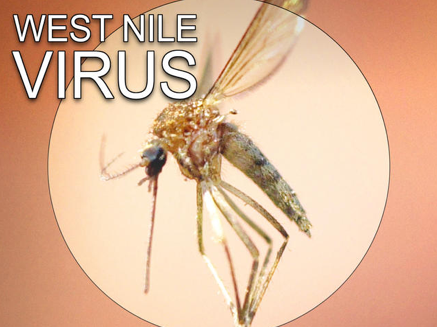NEWPORT — Vermont has its fair share of flying insects, and mosquitoes seem to thrive here in the summer months. Mosquito surveillance, which includes the weekly collection and testing of specific types of mosquitoes, has begun across the state.
During the past few summers, mosquitoes carrying Eastern Equine Encephalitis (EEE) and West Nile virus (WNV) have been found in Vermont. Results of mosquito testing will be updated on the Health Department website throughout the summer.
In 2014, there were eight mosquito pools that tested positive for WNV and eight more that tested positive for EEE virus. Human illness caused by mosquitoes is uncommon in the state, but in 2012, two people from Rutland County died from EEE. In 2013, two horses in Franklin County were infected and died.
People in these communities should take precautions to prevent mosquito bites, but it is likely that EEE is present in other parts of the state, so all Vermonters are encouraged to protect themselves against mosquito bites.
The risk of mosquito-borne illness increases during the summer months, and persists until there is a hard frost in the fall. As the warm weather brings out the insects, the Health Department encourages Vermonters to enjoy outdoor activities while taking simple precautions to avoid bites.
Below is a list of precautions the Health Department recommends all Vermonters take:
Weather permitting, wear long sleeves and pants and avoid outdoor activities at dusk and dawn – when mosquitoes are most active.
Reduce mosquito breeding habitats by getting rid of standing water. Drain areas where water can pool: rain gutters, wading pools and any other water-holding containers such as old tires.
If you are outside when mosquitoes are biting, use an effective insect repellent. Choose repellents that have an Environmental Protection Agency (EPA) registration number on the label. This indicates that the product has been evaluated for safety and effectiveness.
Install or repair screens on windows and doors to keep mosquitoes out.
Protect your animals. Horses are susceptible to WNV and EEE infection, and there are effective vaccines available. Llamas, alpacas and emus are also susceptible and can be immunized with the horse vaccine.
Contact your health care provider if you have questions about your health or need medical attention.
Symptoms of WNV and EEE:
Most people who are infected with WNV will not become ill, and this may be true for EEE as well. Those who become ill with either WNV or EEE will have flu-like symptoms such as fever, chills, fatigue, joint and body aches.
Symptoms typically last one or two weeks, and recovery can be complete. However, both viruses have the potential to invade the central nervous system (brain and spinal cord) and cause more serious illness.
Symptoms of severe disease include fever, intense headache, weakness, poor coordination, irritability, drowsiness and mental status changes.
About one-third of people who develop severe EEE disease will die, and many who recover are left with disabilities. Fortunately, severe EEE is rare.
For more information on West Nile Virus and EEE, and to view EEE risk maps, maps showing towns with active mosquito surveillance, and to find out the latest surveillance results, visit healthvermont.gov.


